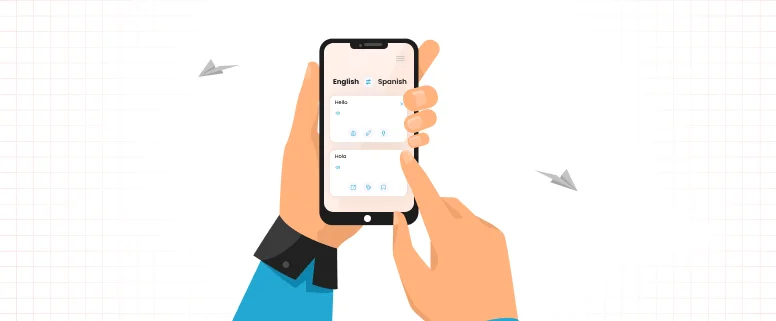1、the irregular inflexion with “ㅂ”:
Most of the adjectives and verbs , which end with the terminal syllable “ㅂ”, when they are connected with the vowels, “ㅂ” will be changed as “우” or “오”. So if the words, such as “돕다” “곱다”, are connected with “-아요,았어요”, they will be changed into “도와요,도왔어요” and “고와요,고왔어요”. Beyond that, other irregular words, which end with “ㅂ”, will be connected with “-어요” and “-었어요”. They are as below: 츱다、덥다、아름답다、무겁다、어렵다、가깝다、맵다、가볍다、쉽다、차갑다、돕다、뜨겁다and so on.
Are you looking for Korean Translation? We are here for your assistance.
For example:
1)날씨가 추워요 . Weather is cold.
2)한국의 여름은 아주 더워요. Korea’s summer is hot.
3)한국말은 어려워요. Korean is hard to learn.
4)설악산이 가까워요. The Seoraksan is near here.
5)김치가 매워요. Kimchi is spicy.
6)지영씨 옷이 참 고와요. Jiyong’s cloth is very beautiful.
7)도와주셔서 감사해요 . thank you very much for your help.
8)커피가 뜨거워요,조금 후에 드세요 . Coffee is too hot to be drank, wait for a moment.
2、the irregular inflexion with “ㄷ”:
Some of the verbs, which end with “ㄷ”, when they are used before the vowel, “ㄷ” will be changed into “ㄹ”.
For example:
묻다:묻+었습니다→물었습니다
+을 겁니다→물을 겁니다.
+어서→물어서
this kind of words are like: 걷다、묻다、듣다.
1)잘 들으세요. Listen carefully.
2)하루에 30분 이상 걸어야 합니다. Have to walk at least 30 mins.
3)-피곤해요? Are you tired?
-네 ,오늘 너무 많이 걸어서 피곤해요. Yes, I walked too much today, so it’s a little tired.
4)-한국말로 “수고하십니다”는 무슨 뜻입니까 ? what’s the meaning in Korean?
-선생님께 물어 보세요. Please ask it with teacher?
5)-어떻게 알았습니까? How did you know??
-뉴스에서 들었어요. From the news.
6)-어떻게 길을 찾았습니까? How did you find the road?
-경찰관 아저씨 한테 물어 봤습니다. I asked help from a policeman.
Read Also: Irregular in Kinflexion korean (II)
3、the irregular inflexion with “ㄹ”:
Some predicate words, which end with “ㄹ”, are connected with “ㄴ ㅂ ㅅ”, the pronunciation of “ㄹ” will be throw away.
For example:
살다:살+ㅂ니다→삽니다
+십나다→사십니다
+는 →사는(사람)
this kind of words are like: 알다、길다、만들다、멀다、달다、벌다、들다、팔다、졸다 and so on.
For example:
1)—어디에 사십니까? Where do you live?
—학교 기숙사에서 삽니다. I live in the dormitory of our school.
2)—저 사람 이름을 아십니까? Do you know what’s her/his name?
—모름니다.처음 보는 사람입니다. I don’t know. It’s the first time for me to meet with her/him.
3)—누가 조현주 씨입니까? Who’s joo hunhu?
—긴 치마를 입고 있는 사람이 조현주 씨입니다. The girl with long skirt is joo hunju.
4)—커피가 너무 달지요? Is it too sweet of this coffee?
—안 답니다.맛이 아주 좋습니다. Not at all. It’s very good.
5)—학교에서 집까지 멉니까? Is it far from school to home?
—아니요.가깝습니다.걸어서 10분 정도 걸립니다. No, it’s near, just need 10 mins for walking.
6)—이사 준비 때문에 힘드시지요? Is it tired for moving?
—네,조금 힘듭니다. Yes, it is.
3、the irregular inflexion with “ㄹ”:
Some predicate words, which end with “ㄹ”, are connected with “ㄴ ㅂ ㅅ”, the pronunciation of “ㄹ” will be throw away.
For example:
살다:살+ㅂ니다→삽니다
+십나다→사십니다
+는 →사는(사람)
this kind of words are like: 알다、길다、만들다、멀다、달다、벌다、들다、팔다、졸다 and so on.
For example:
1)—어디에 사십니까? Where do you live?
—학교 기숙사에서 삽니다. I live in the dormitory of our school.
2)—저 사람 이름을 아십니까? Do you know what’s her/his name?
—모름니다.처음 보는 사람입니다. I don’t know. It’s the first time for me to meet with her/him.
3)—누가 조현주 씨입니까? Who’s joo hunhu?
—긴 치마를 입고 있는 사람이 조현주 씨입니다. The girl with long skirt is joo hunju.
4)—커피가 너무 달지요? Is it too sweet of this coffee?
—안 답니다.맛이 아주 좋습니다. Not at all. It’s very good.
5)—학교에서 집까지 멉니까? Is it far from school to home?
—아니요.가깝습니다.걸어서 10분 정도 걸립니다. No, it’s near, just need 10 mins for walking.
6)—이사 준비 때문에 힘드시지요? Is it tired for moving?
—네,조금 힘듭니다. Yes, it is.
Take a look at how we helped our client by localizing their project for Korean language. Click here to read the complete case study
4、the irregular inflexion with “르”: Most of the verbs and adjectives, the terminal syllable of which is “르”, are connected with vowel, the pronunciation of “르” will be changed.
For example:
모르다: 모르+아요→몰라요
+아서→몰라서
+았어요→몰랐어요
기르다: 기르+어요→길러요
+어서→길러요
+었어요→길렀어요
this kind of words are like: 다르다,모르다,고르다,부르다,자르다,기르다,마르다,빠르다,흐르다,게으르다.
4、the irregular inflexion with “르”: Most of the verbs and adjectives, the terminal syllable of which is “르”, are connected with vowel, the pronunciation of “르” will be changed.
For example:
모르다: 모르+아요→몰라요
+아서→몰라서
+았어요→몰랐어요
기르다: 기르+어요→길러요
+어서→길러요
+었어요→길렀어요
this kind of words are like: 다르다,모르다,고르다,부르다,자르다,기르다,마르다,빠르다,흐르다,게으르다.









